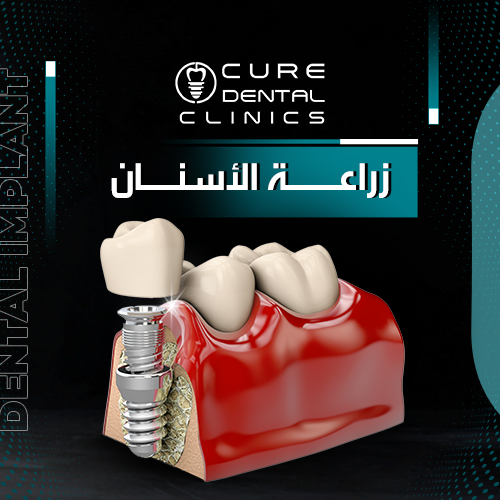Importance of Dental Implants in Improving Oral Function and Enhancing Quality of Life
Dental implants play a crucial role in replacing missing teeth, improving chewing and speech abilities. Additionally, they enhance facial appearance and smile, boosting self-confidence. The use of modern dental implant techniques ensures natural and long-lasting results, making it an effective procedure for maintaining overall health and personal comfort
Indications and Reasons for Dental Implants
Tooth Loss: Dental implants provide an effective solution for replacing lost teeth due to injury, decay, or gum diseases
Improved Speech: Dental implants contribute to enhanced mouth function, including improved chewing and speech
Facial Appearance: Dental implants improve facial aesthetics and smile, boosting self-confidence
Bone Preservation: After tooth loss, there may be a loss in bone density in the area, and dental implants contribute to preserving bone density
Correction of Tooth Size or Texture
Personal Attraction: Enhances personal attractiveness through a beautiful smile
Types of Fixed Dental Prosthetics and Their Features
Crowns
Fixed prosthetics placed over damaged or root-treated teeth, enhancing stability and aesthetics.
Bridges
Fixed prosthetics used to replace or support missing teeth, improving chewing and aesthetic appearance.
Ceramic or Metal Crowns
Installed over damaged teeth to enhance their shape and function, made from materials like ceramic for a natural look.
Fixed Bridges
Permanent solutions for replacing missing teeth, consisting of at least two crowns and a bridge connecting them.
:Titanium Implant Abutments
Installed in the jaw for securing dental implant ,Titanium is used for its corrosion resistance and compatibility with living tissues.
Immediate Implant Restorations
Provides a quick solution for missing teeth without a long waiting period, Implants are installed on the same day as tooth extraction
Implant Restorations on the Lower Jaw
Used when there’s tooth loss in the lower jaw ,Offers better stability for implants on the challenging lower jaw.
All of these procedures require a precise evaluation by a dentist to ensure the selection of the most suitable option for the patient’s condition.
Importance of Dental Implants
Dental implants make individuals feel like they have their natural teeth, especially in terms of taste perception. Implants can provide up to 90% similarity to natural teeth, surpassing fixed prosthetics (70%) and removable ones (35%).
Dental implants contribute to natural taste perception as they integrate seamlessly with the person’s body
Moreover, dental implants can be brushed and cleaned with toothpaste just like natural teeth, maintaining the surrounding gum health
With advancements in dental services, implant costs have become more reasonable, making them comparable to the cost of fixed prosthetics.
Drawbacks of Dental Implants
Financial Cost: Implant procedures can be expensive, but many find the benefits outweigh the costs
Gum Issues: Poor post-implant care may lead to gum problems, such as inflammation or gum recession
Surgical Risks: While rare, there are potential surgical risks, emphasizing the importance of a specialized dentist
Waiting Period: Implant procedures might require lengthy periods, especially for proper fusion between the implant and surrounding bone
Body Sensitivity: There’s a rare possibility of the body rejecting the implant, but the occurrence is minimal
Maintenance Needs: Some dental implant restorations require regular maintenance for optimal performance
Despite these considerations, many believe that the benefits of dental implants outweigh the drawbacks, providing excellent results in function and aesthetics. Individual consultation with a dentist is crucial to evaluate personal needs and make an informed decision
Removable Dentures
These are another alternative for tooth loss that can be removed and placed by the patient. Removable dentures consist of artificial pieces mimicking teeth and gums, designed to fit the patient’s mouth. Key features include:
- Removability: Patients can remove dentures for cleaning and maintenance.
- Aesthetic Resemblance: Designed to resemble natural teeth and gums.
- Adjustable: Dentures can be easily adjusted for better fit and comfort.
- Daily Use: Used as a daily substitute for natural teeth.
- Temporary Solution: Dentures can serve as a temporary replacement during waiting periods for other procedures.
However, despite being an option for tooth replacement, removable dentures do not provide the same stability and comfort as fixed options like crowns, bridges, or dental implants.
Contraindications to Dental Implants
Insufficient Bone: Lack of enough bone in the targeted area for implantation
Gum Problems: Inflammation or gum diseases can hinder dental implant procedures
Inadequate Blood Platelet Accumulation: Good bone erosion and healing require sufficient blood platelets
Bone Diseases: Chronic or genetic bone diseases can affect bone strength, posing a limiting factor
General Health Issues: General health conditions, such as heart diseases or respiratory problems, may impact the suitability for dental implants.
Adjacent Tooth Problems: Issues with neighboring teeth, like cavities or infections, can interfere with the dental implant process
Smoking: Smoking can negatively affect the healing process and success of dental implants
Improper Alignment: Insufficient space in the mouth for implants without surgery
It’s important to note that dental implants have evolved, and now their prices are competitive with other dental procedures. Dental implantation no longer takes an extended period, debunking misconceptions spread by non-specialized practitioners.
